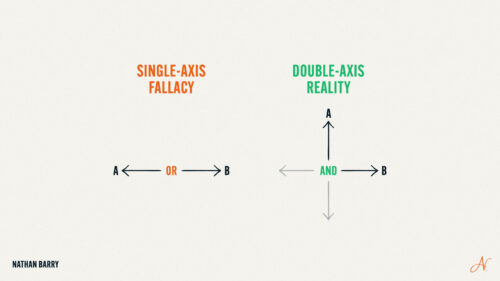The other night I was sitting on the patio with my two business partners in our fledgling real estate business. As we reviewed financial forecasts and equity schedules for our two new properties, Patrick voiced something we were all thinking: “I’m getting a really good deal.”
He’s right! A year ago Patrick was working construction for a little over $20 an hour. Today he’s working full-time as a partner in our company to build a collection of short-term rentals, and has earned over $100,000 in cash and equity so far this year.
But here’s the thing: I think I’m getting just as good of a deal as Patrick. I use some of my income from ConvertKit to purchase the properties and then Patrick runs the entire remodel. I get a far better cash return than the stock market and put in less than 5 hours a month. It’s a dream investment scenario!
Philip, our third partner handles a lot of the business logistics, taxes, and Airbnb management and feels the same way. But wait, how is it that all three of us all feel like we are getting a crazy good deal? Shouldn’t one person feel like they are getting a better deal than another?
None of us would do this business without the other two. Without Patrick’s remodeling skill and ability to turn around substantial projects quickly, Philip and I wouldn’t be interested in hiring contractors and managing them. Philip’s business and finance skill means I don’t have to worry about those logistics. Sure, both of those could be hired out, but then I’d be running the business instead of putting all my time and energy into ConvertKit where I get the biggest return. And finally, I can front the money to buy properties in cash that banks wouldn’t lend, getting us access to more deals.
The sum is greater than the parts.
Playing positive sum games
While this seems surprising at first, it’s just the shift from thinking about business as a zero sum game (for me to win someone else has to lose) to a positive sum game (we can all win).
The best entrepreneurs don’t think, “how can I win?” instead they think, “how can I solve a problem in a way that we all win?”
Apple makes better products which push make them the most valuable company in the world, their team get really well paying jobs solving hard problems, and consumers get great products at historically low prices.
In starting ConvertKit I get to work on a problem I care about and build substantial wealth, while providing great work and the opportunity to build wealth for the team, and creators everywhere get a great product to use to grow their businesses. Even those that don’t use our products benefit as our innovations push competitors to be better (and vice-versa).
My friend Casey runs Harkla, a product company for kids with special needs. Their team and customer NPS is over a 9 out of 10. The company is profitable, hiring quickly, and rolling out great new products. The team is happy. Customers are happy. And owners are happy (I’m an investor).
Your job as an entrepreneur is to make 1+1 equal anything greater than 2.
We tend to think of partnerships as a way to get something done in half the time: if I have a ditch to dig and I convince you to help me with it. But the best partnerships are where the joint effort is more than an incremental return.
The simplest example is when Oliver and August, my nine and six year old boys, partner to empty the dishwasher. One of them climbs on the counter to put glasses away while the other brings the the dishes across the kitchen. The time saved not climbing up and down means more than double the speed improvements (assuming they can cooperate).
It’s when a marketer who used to promote affiliate and drop shipped products teams up with a great engineer to build a high-quality with a real brand. Or when an engineer pairs with a designer to make their solution easy to use for the masses. To read more about personal leverage, check out Eric Jorgenson’s writing.
Where can you look at the raw materials—whether they are labor, capital, media, or something else—and dream up a unique combination where the sum are greater than the parts?
That’s when you’ll be able to achieve exponential growth in your wealth and impact, rather than simply linear returns. And most of all, look for the places where you can combine disparate items and people to create something where everyone feels like they are getting a great deal.
Thanks to Casey Ames for providing feedback on an early version of this post.



Tough job. Isn’t it? But it’s not impossible. So have fun, while you do it.
Haha, great blog post — give your kids an applause for their great cooperation! 👏